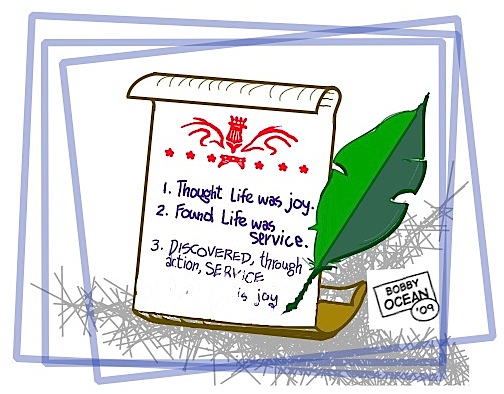LEAP OF FAITH RADIO PRODUCTION with Bobby Ocean
 Just under 400 years ago in England, in the County of Derby, there was a gentleman by the name of Philip Stanhope, who enjoyed his title of British Statesman, as Lord Chesterfield. His lifetime, so far removed from our computer networking and Book of Face connections, included a robust preoccupation with social networking and its success. He most certainly would have had his own blog.
Just under 400 years ago in England, in the County of Derby, there was a gentleman by the name of Philip Stanhope, who enjoyed his title of British Statesman, as Lord Chesterfield. His lifetime, so far removed from our computer networking and Book of Face connections, included a robust preoccupation with social networking and its success. He most certainly would have had his own blog.
His Letters are replete with advice about how to succeed in society, such as this little gem which can easily be construed as a How To Succeed In Voice Over mini seminar. In one sentence, he communicated three univeral principles of writing and production for broadcast. He wrote:
“Even where you are sure, seem rather doubtful; represent, but do not pronounce, and if you would convince others, seem open to conviction yourself.”
Taking this sentence into the recording studio we see three excellent areas within its structure which we find most helpful. First, “…where you are sure, seem rather doubtful…”
The conversion to 21st century radio Production might read:
“Lead the listeners into your realm of thought but do not make conclusions for them. Allow them to process your information, then reach their own conclusions.” You know that telling someone something is not as powerful as having them discover it for themselves, so you create the scene in which they may do just that.
Then Lord Chesterfield added:
“…represent, but do not pronounce…”
Key in commercial Voice Acting today is not being detected selling. So actors are currently trained to steer away from the smile-mouthed pitchman and operate from a manufactured honesty, “confessing the truth.” Today’s VO actor doesn’t use energy to convince the listener, but, instead, to “reveal” the product information in a manner that suggests it is the ultimate solution. The pitch is concealed, hiding the pronouncement under the more acceptable admission.
And finally:
“… if you would convince others, seem open to conviction yourself.”
Who seems the more believable to you? The guy whose mind is made up and remains tightly “on message,” or the guy who has something interesting to say, but also seems flexible and remains willing to listen? Duh, THAT was easy – an open and shut case about an open and shut mind.
Wow. Three valuable “universals” that have stood the teat of nearly 400 years and still function beautifully in our work today. Way to go, Phil, um, I mean, Lord Chesterfield.
It was this very same gentleman who also said, “Whatever is worth doing at all is worth doing well.”

